Israel-Palestinians: How to untie diplomacy's Gordian knot?
- 20 October 2015
- Middle East
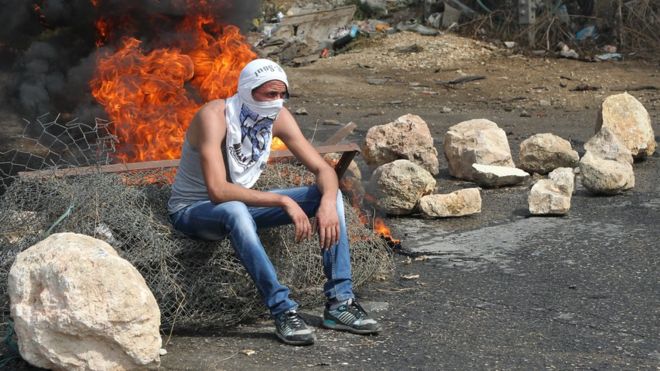 Getty Images
Getty Images
Escalating violence has stirred international diplomacy out of its torpor.
The foreign ministers and envoys once again have to apply their wits trying to unravel that Gordian knot of international affairs since 1948, the Israeli-Palestinian issue.
So, US Secretary of State John Kerry talks about the urgent need to clarify the status of Jerusalem's holy places, while last week the French canvassed support in the UN Security Council for a new initiative, while all the time the death toll climbed in Israel and the occupied territories.
On Thursday, there are plans for Mr Kerry to meet Israeli Prime Minister Benjamin Netanyahu in Berlin.
What are they going to talk about these statesmen and women?
What value can there be, going to and fro, when so many different approaches have been tried before and failed?
Isn't the new Palestinian uprising, or intifada, fundamentally an upsurge of frustration with the hopelessness of it all?
We have some idea what these new approaches involve - but let's park that for a moment, because whatever people have in mind, it remains a fiendishly hard problem.
Having covered the search for a solution for the past 25 years, I can remember only too well the many different ways that were tried.
Back in 1991, a "comprehensive approach" was attempted at the Madrid Conference, with the idea that Israel should make peace with all its neighbours at once, resolving at the same time the Palestinian refugee issue.
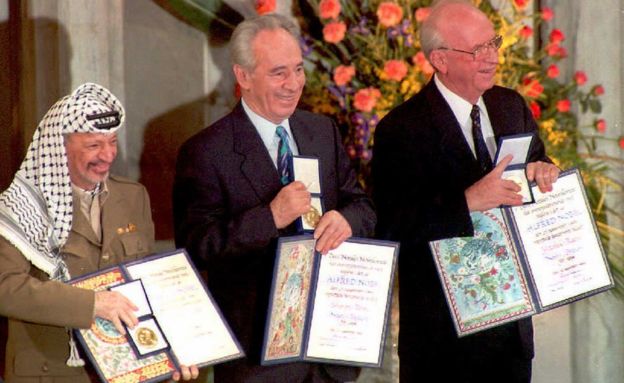 Getty Images
Getty Images
Diplomats later abandoned this grandiose concept and tried incremental approaches in more recent years, from "Gaza First", to "Virtual Palestinian Statehood".
The idea was to work on what seemed achievable rather than get deadlocked on the most intractable final status issues (principally the question of Jerusalem and fate of Palestinian refugees).
Perhaps the most successful phase of peacemaking, the Oslo Agreement of 1993, involved a combination of these approaches, moving forward with a raft of Palestinian self-rule measures in Gaza and the West Bank, while pledging to resolve those intractable questions at the heart of the conflict later.
Both the Israeli far right and the militant Islamists of Hamas rejected the Oslo approach. And in 2000, when the second Intifada broke out, it died and thousands of lives were lost.
One of the widespread assumptions of negotiations back then was that the US would have to deliver Israel for a peace deal, and the EU and certain Arab states would have to get the Palestinians on board.
But all of this looks very problematic now - Mr Netanyahu and US President Barack Obama are hardly on speaking terms after Israel's abortive attempts to halt the Iran nuclear deal.
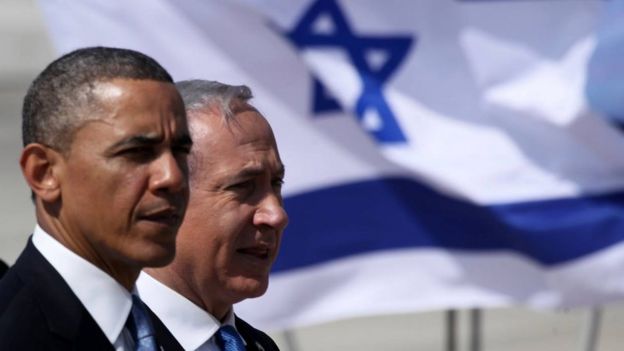 Getty Images
Getty Images
Meanwhile, many of the biggest donors to the Palestinian cause have held up cash intended to rebuild Gaza because of the failure of Hamas and the Palestinian Authority to move ahead with a process of reconciliation aimed at ending their near decade-long feud.
Without progress towards a working unity government, Palestinian participation in talks is problematic.
With things looking so bad, both Mr Netanyahu and senior Palestinian figures had started to flirt in recent years with abandoning the "two-state solution" or partition of disputed lands, and hint instead at a unitary state, each side implying it would hold the upper hand.
Seven months ago, Mr Netanyahu seemed to go back on a 2009 commitment to a Palestinian state, saying it had been given before turmoil engulfed the Arab world and that as of 2015, "any territory which would be handed over would be taken over by radical Islamists".
Palestinian President Mahmud Abbas, meanwhile, has focused efforts on taking Israel to the International Criminal Court for its 2014 campaign in Gaza, trying to halt settlement activity and drawing attention to what he characterises as Israeli attacks on Muslim holy sites in Jerusalem.
Some background to the conflict
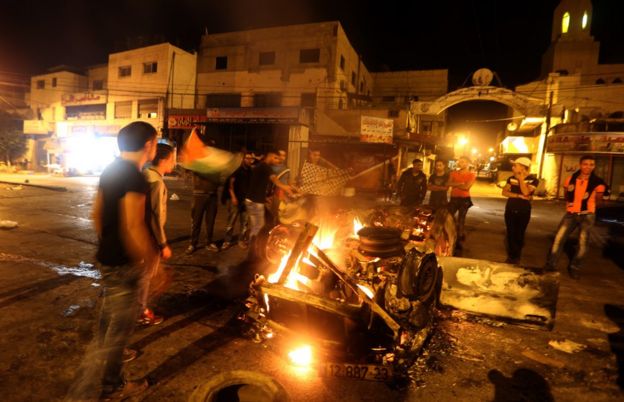 Getty Images
Getty Images
After a period of relative quiet, violence between the two communities has spiralled since clashes erupted at a flashpoint Jerusalem holy site in mid-September.
They were fuelled by rumours among Palestinians that Israel was attempting to alter a long-standing religious arrangement governing the site.
Israel repeatedly dismissed the rumours as incitement.
Soon afterwards, two Israelis were shot dead by Palestinians in the West Bank and the stabbing attacks began.
Both Israel and the Palestinian authorities have accused one another of doing nothing to protect each other's communities.
So where can peace brokers possibly go from here?
In the first place, they are attempting to calm tensions over the al-Aqsa mosque and Dome of the Rock, Federica Mogherini, the EU's top envoy, tweeting last week: "Respect for holy sites key".
A French proposal at the UN for an international monitoring group to go into Jerusalem's Old City in order to ease tensions at these sites was rejected on Sunday by Israel.
US diplomacy, for its part, has been leaning on Mr Abbas, urging him to condemn the recent wave of stabbings by Palestinians.
Mr Kerry hopes to see the Israeli leader later this week (though it's possible Mr Netanyahu may postpone his Berlin trip if security deteriorates further) and Mr Abbas in Jordan at the weekend.
These planned meetings though are about containing the current violence, not grand designs for the future.
With the US moving into election season, and President Obama apparently uninterested in hazarding what remains of his presidency on Middle East peacemaking, the French see an opening.
Their proposal on Jerusalem was designed to reassure both Muslim and Jewish people that recent incitement about possible changes to the status quo is unfounded, and limit further clashes.
France has also been working on Security Council initiatives aimed at halting Israeli settlement construction and advancing Palestinian statehood.
Since the US and EU are consistently trying to prevent Israel from backsliding on the two-state approach to peace, Mr Netanyahu has not repeated the kind of language he used during his election campaign.
In fact, last month at the UN General Assembly he said: "I remain committed to a vision of two states for two peoples."
Oded Eran, onetime head of the Israeli negotiating team with the Palestinians, says the prime minister is to be believed, but that the two-state option is unattainable for the time being, "the current domestic political circumstances in Israel and the instability in the region make this proposition very unrealistic".
Given that continued expansion of Jewish settlements complicates any eventual two-state solution, foreign negotiators will want to hold Mr Netanyahu's feet to the fire on this, urging a freeze.
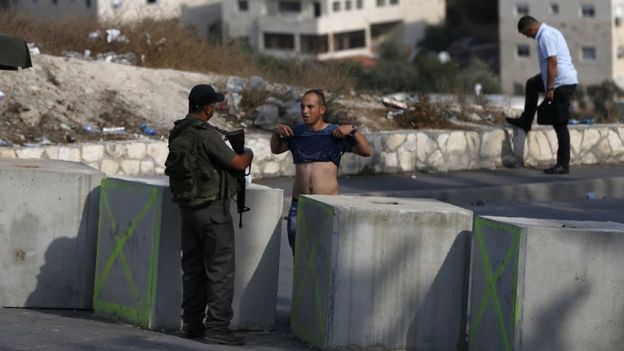 Getty Images
Getty Images
Ari Shavit, a liberal Israeli commentator and author of My Promised Land, says continuing the settlement project, is "a suicide option" for Israel and urges the resumption of step-by-step peacemaking, including a settlement freeze on the West Bank and a project to increase Gaza's water supply.
However, stopping this construction, let alone territorial concessions, are anathema to many of Mr Netanyahu's right-wing allies, so the question is whether the outside world can exert any leverage.
Mustapha Barghouti, a Palestinian legislator and onetime minister says the "only way to have two-state solution is to change the balance of power", and argues that American pressure on Israel is essential for that.
This is a familiar refrain among Palestinians, but America's role seems diminished, at least for the time being.
Israel's allies in Congress will make sure the Jewish state's arms supplies are not cut off, while the administration sees more urgent problems in Syria and a positive legacy in its Iran agreement.
Increasingly, it is within the EU that the key discussions about the Middle East peace process occur.
Many countries favour tougher action against Israel, including changes to its favourable trading terms, but they have generally been blocked by the UK and Germany.
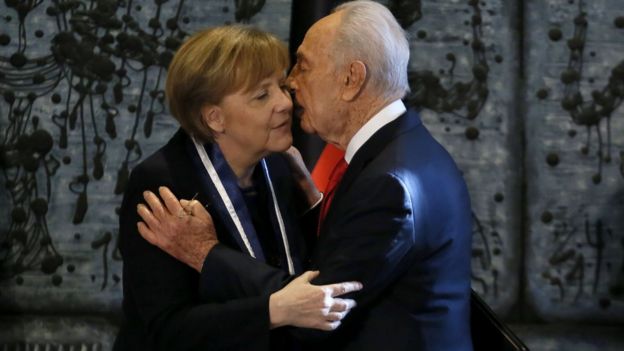 Getty Images
Getty Images
On this question, as on so many others these days, Germany and the person of Chancellor Angela Merkel are now of central importance.
Hence Mr Netanyahu's planned visit this week to Berlin.
Germany's traditionally pro-Israeli stance has been shifting, particularly since the 2014 Gaza campaign.
A growth in Germany's Muslim population, not least through the acceptance of hundreds of thousands of refugees, may also have an effect, long term.
Even so, Oded Eran assesses that the EU "will not impose trade sanctions capable of changing dramatically Israel's policies".
If the international community is to coalesce on this issue - and it's still a big "if" given that Syria's tragedy and its resulting refugee crisis are more central to the concerns of most foreign ministries - the key shifts, at least until a new US president is elected, are likely to take place in the Europe.
If France uses its place in the Security Council and Germany its leading role in the EU, pressure could soon build, particularly on Israel, for the meaningful steps back towards a two-state solution.
Mark Urban is diplomatic and defence editor for BBC Newsnight

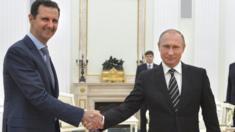
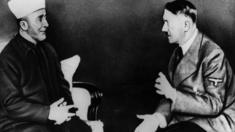


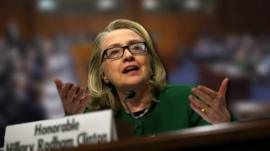


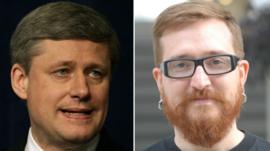
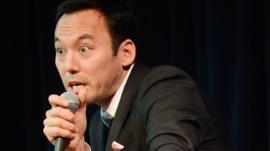



No comments:
Post a Comment
Please leave a comment-- or suggestions, particularly of topics and places you'd like to see covered